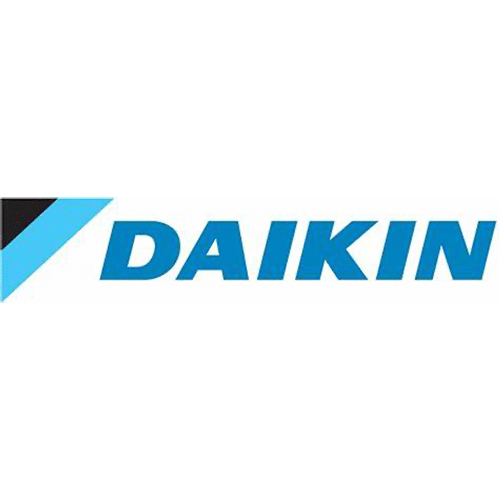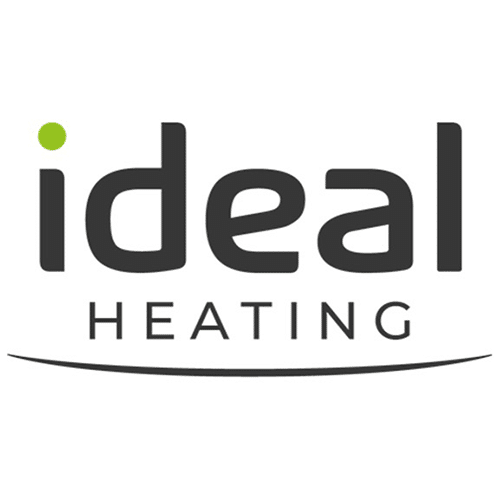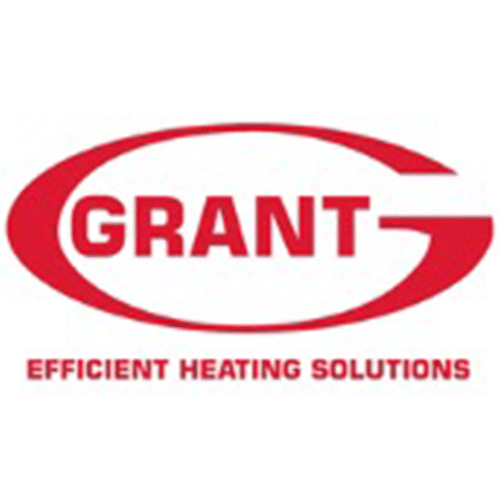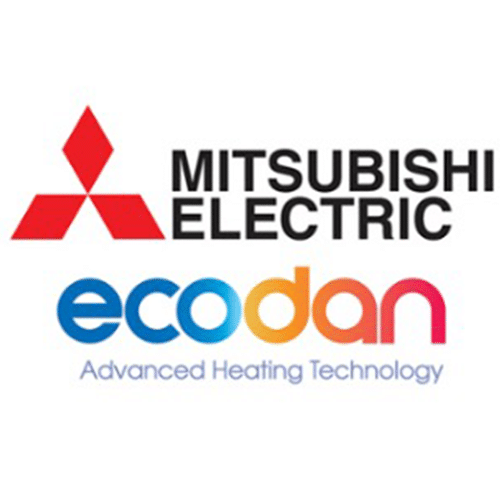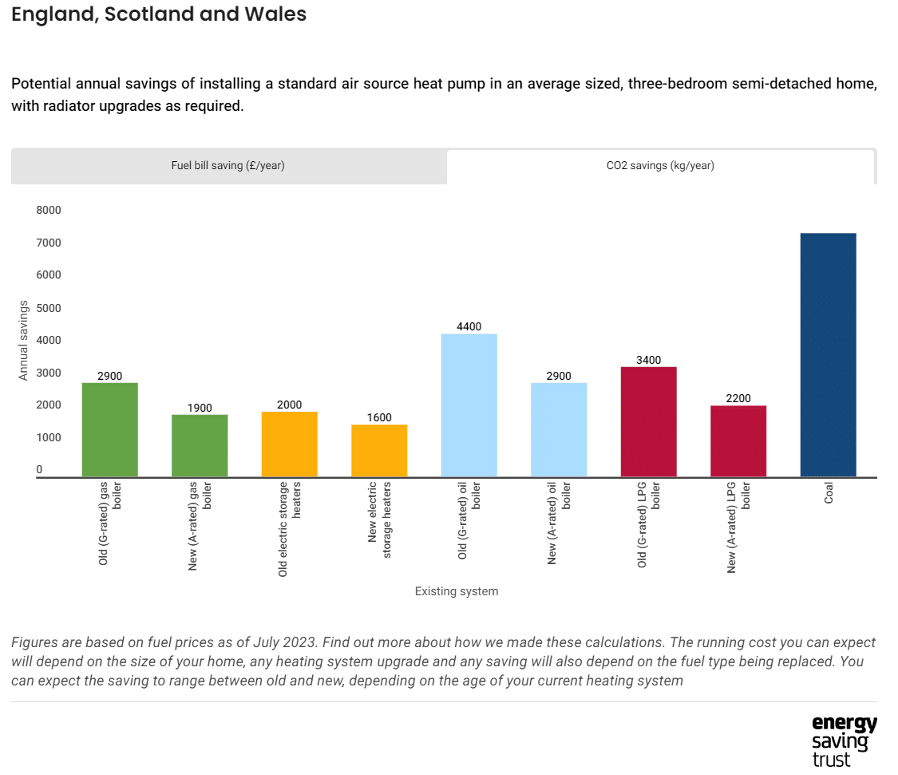
Switching to Air Source has so many benefits
Air Source Heat Pumps bring many benefits including:
- Energy Efficiency – put in 1 unit of electricity and get 3-4 units of heat
- Low Carbon Footprint – avoid polluting gas and oil boilers
- £7,500 Government Grant – get money off the installation cost
Long Lasting
Economy
Heat pumps can last as long as 25 ayears, more than twice as long as gas boilers
Eco
Friendly
Heat pumps produce 75% less carbon emissions than a normal gas boiler
Highly
Efficient
Heat pumps are around 400% more efficient than a normal gas boiler
Keeping You
Warm
Heat pumps run most efficiently when they gently and continuously keeping your home nice and cosy
Receive a £7,500 grant with the Boiler Upgrade Scheme (BUS)
The Government-backed Boiler Upgrade Scheme has recently been introduced to help property owners switch to a low carbon heating system, with a £7,500 grant towards the cost to supply and install an Air Source Heat Pump. The scheme runs until 2025 and is open to domestic and small non-domestic properties in England and Wales.
As an MCS Certified Installer, we can advise you on eligibility AND we’ll apply for the grant of your behalf. The full claim is deducted from the up-front cost, so you don’t even have to wait for payment. Ofgem will contact you to confirm we are acting for you.
Talk to us today and we’ll help you save energy, reduce heating bills AND save you £7,500
Book a survey for your Air Source Heat Pump quote
Book your survey now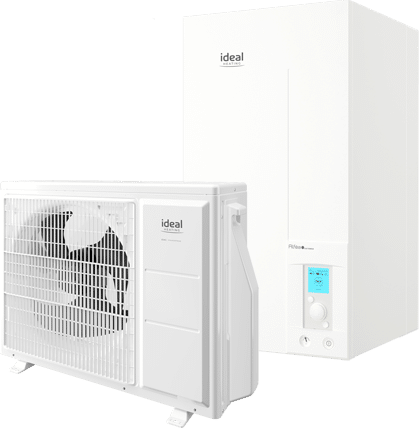
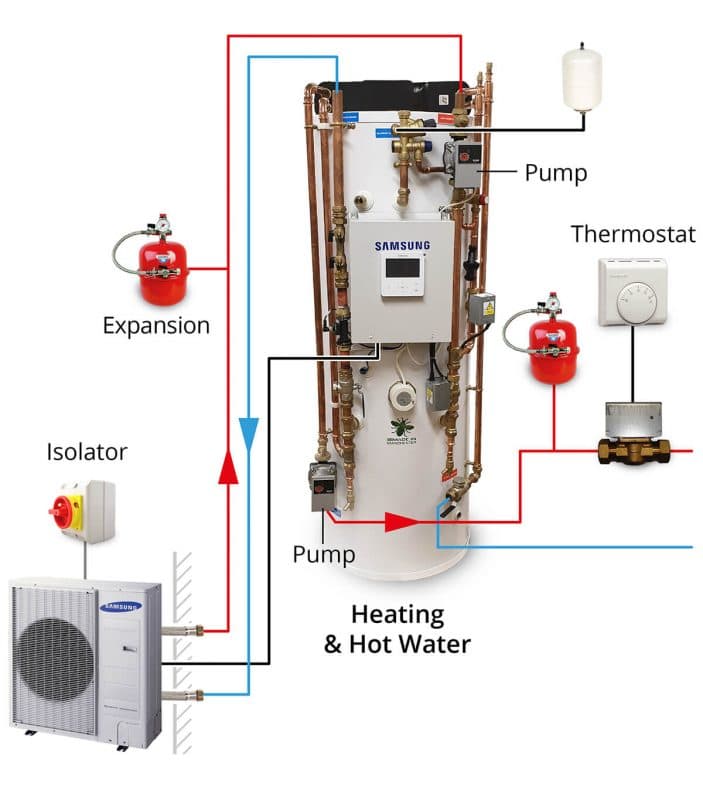
Survey, Proposal and the Air Source Heat Pump Installation Process
We are happy to survey your home and send a detailed proposal. We are technically led and won’t sit in your living room asking you to sign on the dotted line. This is the typical process from start to finish:
Initial discussion on the phone, explaining what the technology can do and talking through your particular situation.
60-minute survey at your home.
Within 2-3 days, we send you a formal, fully costed proposal.
We call you to discuss the proposal and answer any questions you may have.
If you wish to go ahead, we book a slot in our installation diary.
We carry out the installation on the agreed dates – most projects take 3-5 days to complete.
Finally, we send you an installation pack with all relevant documents.
We are also available at any time after your installation to help with any queries that come up.
To book your free, no-obligation survey to get an accurate costing of your new heat pump, send your details and we'll get back to you as soon as possible
Book your survey now
Frequently Asked Questions
We’ve tried to answer as many questions as possible, but if there’s anything else you need to know, please don’t hesitate to contact us
on 01302 745500 or email customercare@bell-plumbing.co.uk and we’ll get back to you as quickly as possible.
Why choose an air source heat pump?
The type of heat pump you choose will depend on the type of property you live in, but heat pumps have many advantages. Here are just a few of the main ones:
Heat pumps are more environmentally friendly
Air source heat pump benefits include that it’s a more sustainable option than traditional oil or gas heating, so can help your home to become more energy efficient and reduce your carbon footprint.
Heat pumps require electricity to run, but they use the electricity more efficiently than other heating systems, with a typical heat pump using only about a quarter of the energy needed for a traditional gas boiler. Plus, if the electricity comes from renewable sources, such as your own solar panels, emissions could be even lower.
How much does an air source heat pump cost?
The cost of an air source heat pump varies depending on the size of heat pump, the size of the property, whether it’s a newbuild or an existing property, as well as whether you need to change the way you distribute heat around your property.
Typical costs are around £10,00 – £14,000 subject to your grant amount.
Will an Air Source Heat Pumps save me money on my energy bills?
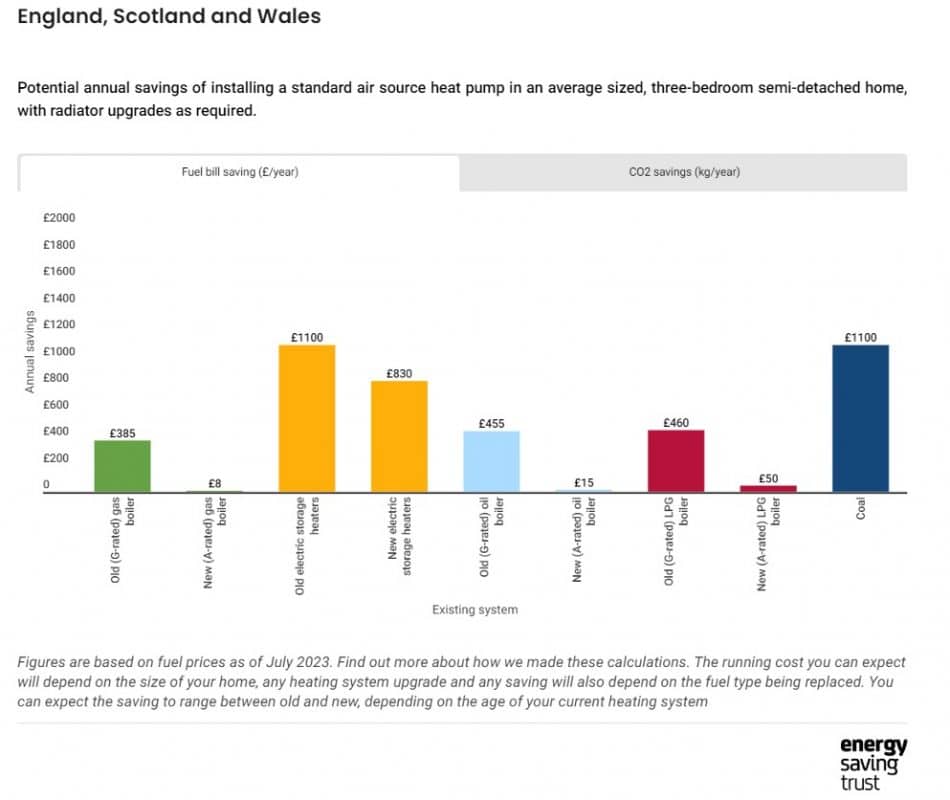
Running costs will depend on how your heat pump is designed and how it is operated. Savings on your energy bill will also depend on the system you are replacing.
You can see potential annual savings of installing a standard air source heat pump, including any recommended radiator upgrades, in an average sized, four-bedroom detached home, below.

Where will my Air Source Heat Pump go?
You’ll need a place outside your home where a unit can be fitted to a wall or placed on the ground. It must have some space around it to allow a good flow of air.
There are two types of air source heat pumps: monobloc and split systems. A monobloc system has all the components in a single outdoor unit, with pipes carrying water to the central heating system and a hot water cylinder inside your home.
A split system separates the components between indoor and outdoor units. Whether a monobloc or split system is right for you will depend on your budget and the space available.
Monobloc systems tend to be cheaper and quicker to install and don’t take up as much space in your home, although they are generally slightly less efficient than split systems. The efficiency gain from split systems comes from some of the heat transfer taking place inside the building where it is warmer, resulting in less heat being lost.
If you’re not limited by space inside your home, it may be worth the extra cost of installing a split system. Your installer should be able to talk you through your options and help you choose the design that works best for you.
Will an Air Source Heat Pump give me enough hot water?
Assuming that it has been sized and installed correctly, a heat pump can supply more than enough heat for both space heating and hot water. However, there are a few things to be aware of if you’d like to use a heat pump for hot water and achieve high efficiency.
Will the water in my bath and shower be colder?
Although the heat pump’s hot water temperature is roughly 20°C cooler than other domestic heaters, 30 seconds in a shower at 55°C would still leave you with severe burns, so for those who love their showers to be scalding hot, you won’t be disappointed. The only difference would be that you’d have to turn up the heat a little, as you’d need a greater volume of hot water than before.
Upsizing your hot water cylinder
As the name suggests, a hot water cylinder (or hot water tank) is a reserve of hot water that stands ready for immediate use i.e. when you run a tap, shower or bath. Typically, heat from a high-temperature boiler passes into the cylinder via heat exchanger coils. The problem arises when the boiler is replaced with a low temperature-efficient heat pump. The lower differential (the temperature difference between the flow and return) means that less heat will pass through the coils – the heat pump will think it’s doing its job without delivering enough heat, so the temperature in the cylinder won’t reach the desired level.
The solution to this is to replace your current cylinder with one that is designed for hot water from a heat pump. Just like with your emitter system, the main difference with heat pump-specific cylinders is that they have a much larger coil capacity, so there’s an increased surface area for the heat to transfer through the coils and warm the water in the cylinder.
Heat Pump hot water priority
If there’s a demand for both hot water and space heating at the same time, the heat pump will assume that the hot water is urgent, and leave your space heating until after the hot water cylinder reaches the desired temperature.
Will an Air Source Heat Pump take longer to heat my home?
In short, yes.
An airsource heat pump works on low temperatures of around 35 – 55 degrees whereas a conventional gas boiler will work up to 85 degrees so this means it will take longer for your heat emitters (radiators) or underfloor heating to get warm and this is why in a lot of cases some radiators may need upsizing to help deliver that heat faster.
Low temperature systems such as heat pumps are still able to deliver the same heat as conventional boilers and its more efficient and also cheaper to run.
How long will an Air Source Heat Pump last?
The long life of a heat pump is attributed to their design – there isn’t that much that can go wrong, particularly with newer models. Their lifespan may vary depending on model and manufacturer, and having a maintenance contract in place may help to prolong their efficiency and life expectancy.
Compared to other types of heating, heat pumps are the clear winners in terms of their longevity. Oil, electric and gas boilers may only work for 10 – 12 years before their parts need replacing, parts which the manufacturer may well have stopped producing.
In most cases, the first thing to break is the compressor, which raises the temperature of the refrigerant within the heat pump. As this component rarely stands idle, it is prone to burn out over time so their breaking can’t be helped. Whether it’s better to simply replace the compressor or the whole unit will depend on how old your system is; if the heat pump is closer to 20 years old, it might be more economical to replace the entire system, considering the efficiency of newer models have increased.
The warranty of heat pumps vary from manufacturer to manufacturer, but it should cover 5 years for replacing any faulty parts and 1 year on the labour required to install these replacements. We’ll always clearly explain the warranty on any equipment we propose, and can also offer Service & Maintenance packages to help you get the longest life from your system.
Are Air Source Heat Pumps as efficient as conventional boilers?
Yes, up to 400% more
Air source heat pump vs gas boiler.
Air source heat pumps take heat from the air and use it to warm up your home. Believe it or not, many of them are designed to work in sub-zero temperatures. We have also compiled a list of the best air source heat pumps in case you are looking for one of these for your home.
Efficiency: Air source heat pumps beat gas boilers when it comes to efficiency. In recent years, gas boilers’ efficiency has improved thanks to condensing boiler technology. Even so, their efficiency seldom goes above 94%. Most top gas boilers are usually 90-94% efficient, which means that some heat will always be lost and emitted from their flue pipes.
On the other hand, heat pumps are around 300-400% efficient. Thus, you will get 3 to 4 times more heat for every kilowatt (kW) of electricity the heat pump uses.
Will the external Air Source Heat Pump be loud?
The external unit for a heat pump is identical for both monobloc and split heat pumps. Noise is created by large fans moving air across the heat exchanger.
Unless the heat pump is working very hard (ie in cold weather or producing high temperature water), you can expect the noise to be a similar volume to a fridge, if you were standing within a couple of metres. You could easily hold a normal conversation next to it, without raising your voice. As it gets colder outside, this noise will increase while it’s operating, but should still allow you to hold a conversation easily, only raising your voice a little.
The inside unit for a split system only contains valves and pumps and makes very little noise at all.
Will I use more electricity with an Air Source Heat Pump?
Yes.
The heat pump run on electricity so this usage will be over and above what you already use in your home, however you will NOT have a Gas / Oil / LPG bill anymore, and with Gas prices planned to increase in the next few ears you should see a saving on your total bill, the Government are also planning on putting levy on Future Gas prices as well as gas boiler sales meaning the price of domestic boiler installs will increase to encourage more people to consider a Heat Pump.
What manufacturer warranty will I get with an Air Source Heat Pump
The warranty varies from supplier to supplier which depends on which heat pump is best suited to you home however as approved installers with many manufacturer’s we can ensure you get the best cover available usually around 5/7 years
What installation warranty will I get with an Air Source Heat Pump
The warranty for the installation is standard 2 years and all our jobs are registered with a workmanship warranty insurance in line with our commitment to MCS & RECC to ensure the customer gets 100% peace of mind.
We can offer extended Installation warranty in line with the manufacturer’s warranty more information can be provided upon request.
Does an Air Source Heat Pump require an annual service?
The Heat Pump & Cylinder should be serviced annually to maintain your manufacturer’s warranty we can provide this service we will contact you a month before your service is due.
Can I have a service package?
Yes, the cost is £30.00+VAT per Month
If you choose to take out a service package with ourselves your annual service will be included any call outs to the system are included and minor parts for more information on this service can be supplied upon request.
What is MCS?
MCS is a standards organisation.
We create and maintain standards that allows for the certification of products, installers and their installations. Associated with these standards is the certification scheme, run on behalf of MCS by Certification Bodies who hold UKAS accreditation to ISO 17065.
MCS certifies low-carbon products and installations used to produce electricity and heat from renewable sources.
MCS is a mark of quality. Membership of MCS demonstrates adherence to these recognised industry standards; highlighting quality, competency and compliance.
What is RECC?
RECC sets out high consumer protection standards for businesses who are selling or leasing renewable energy generation systems to domestic consumers. RECC is approved by Chartered Trading Standards Institute as part of the Consumer Codes Approval Scheme and is also a TrustMark Scheme Operator.
By displaying the logo RECC Members signal they have agreed to abide by the high standards set out in the Consumer Code, following the consumer journey from start to finish, and in the Bye- Laws. Both the Code and the Bye-Laws dovetail with the Microgeneration Certification Scheme (MCS) installer standards.
RECC members work with a range of renewable technologies from solar photovoltaic (PV) systems, solar water heating systems, ground and air source heat pumps and boilers fuelled by wood chips or pellets. They also work with common ‘add-ons’ such as battery storage systems, voltage optimisers and i-boost systems.
What is a workmanship warranty?
What the scheme covers
The deposit and advance payment element of the policy will be valid from the date you pay the deposit until the date agreed in the contract for the goods to be delivered to you for installation (so long as this period is 120 days or less).
If the RECC member later tells you it’s unable to deliver the goods on the agreed date, through no fault of yours, and if the installation will take place more than 120 days from signing the contract, you should contact QANW and ask for a policy extension. (If the extension is for longer than 30 days you may be asked to pay a small additional premium which the RECC member should agree to refund you.) You should address any specific queries about the cover to QANW.
The workmanship warranty element of cover will be valid from the date your installation is completed. It will be valid for the same length of time as the workmanship warranty is valid for. This will be for a minimum of 2 years, but could be for longer, say 5 or 10 years, depending on the installation and the RECC member.
Do you have an example specification?
ASHP Installation £14,00.00 Inc Vat (0%)
1 x 12KW Aquarea TCAP Mono – WH-MXC12J6E5
1 x 50L Panasonic Buffer tankXC12J6E5
1 x UK Cylinder 250L
28mm Pipes from Cylinder to ASHP
Electric cables to ASHP
Test & Commission
MCS Registration
NIC EIC Registration
Workmanship Warranty
£7500 BUS Grant towards your installation
Estimated Savings on current Fuel £605.00 per year
Total Annual saving in year 1 = £605.00
Return on Investment (Fossil Fuel Inflation @ 13%)
Return on Investment 5 Years (Daytime Tariff)
Return on Investment 2.5 Years (Night time Tariff)
We have a copy of your EPC and a Full Heat Loss calculation has been completed
** THIS EXAMPLE IS FOR ILLUSTRATION PURPOSES ONLY**


